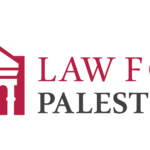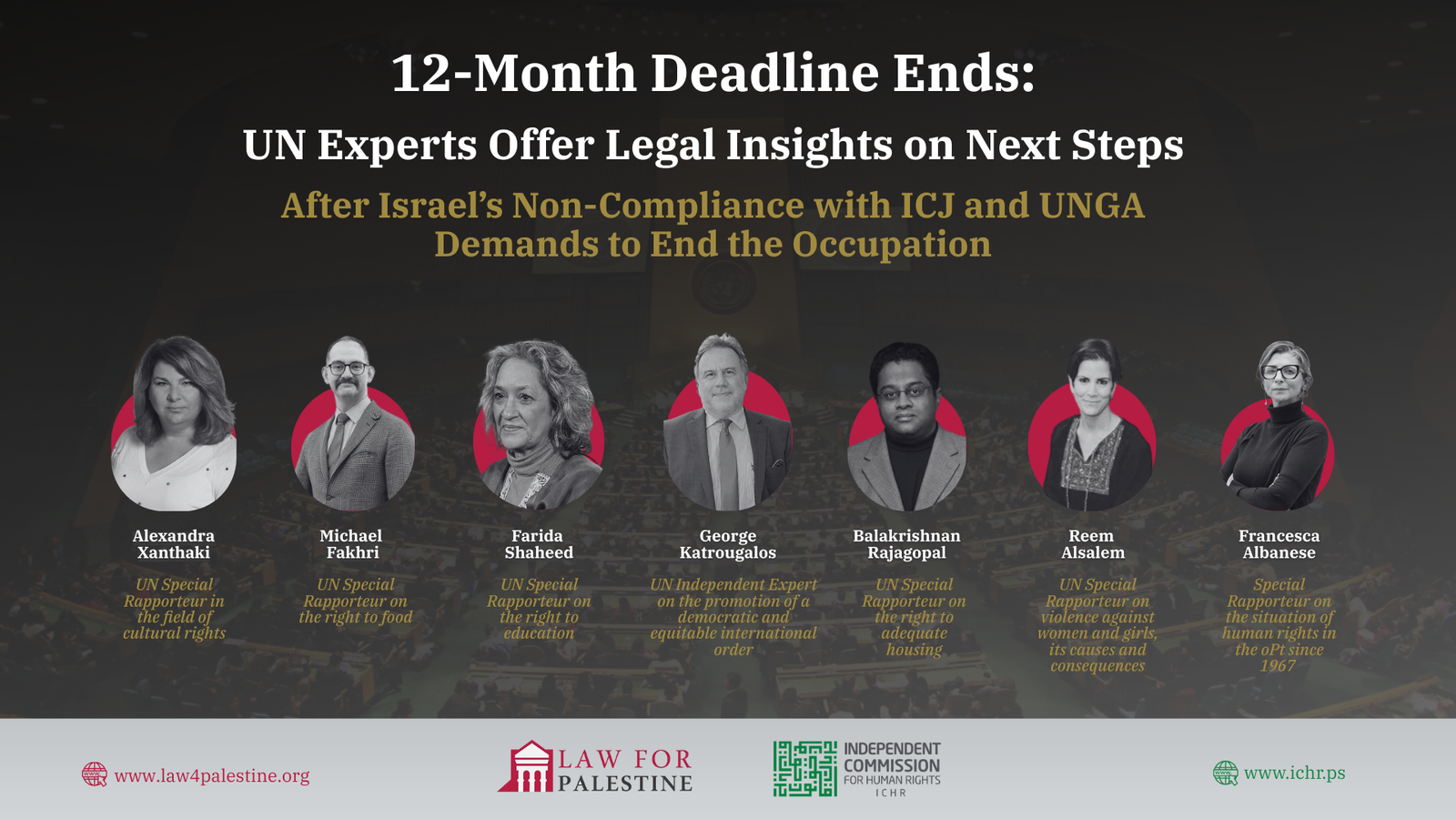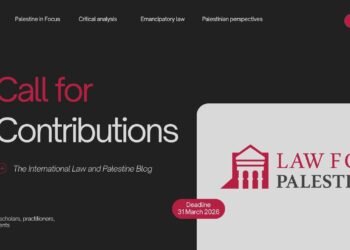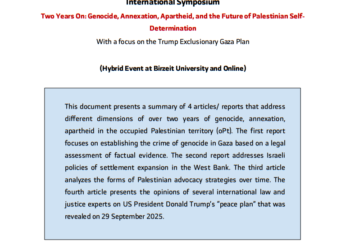As UN Deadline to End Israel’s Occupation Passes, Law for Palestine and ICHR Publish Interviews with Seven UN Special Rapporteurs on the Way Forward
On 19 July 2024, the International Court of Justice (ICJ) issued one of its most significant Advisory Opinions in decades, declaring Israel’s occupation of the Occupied Palestinian Territory illegal under international law. In unequivocal terms, the Court held that the occupation breaches peremptory norms of international law (jus cogens), including the Palestinian people’s right to self-determination, the prohibition on the acquisition of territory by force, and the prohibition of racial segregation and apartheid. The ICJ called for the occupation to end “as rapidly as possible” and outlined a range of legal consequences for Israel, third States, and international organisations. These include the obligation not to recognise the illegal situation, not to provide aid or assistance in maintaining it, and to adopt effective accountability measures against those responsible.
Two months later, on 18 September 2024, the UN General Assembly (UNGA) endorsed the ICJ’s findings and gave effect to them through Resolution A/RES/ES-10/24. The Resolution reaffirmed the binding nature of the legal obligations set out by the Court and called on third States to ensure compliance through diplomatic, economic, and legal means. These measures range from halting trade with settlements to imposing sanctions on individuals and entities complicit in the occupation.
The UN General Assembly set a 12-month deadline for Israel to end its unlawful presence in the Occupied Palestinian Territory – a deadline that expired last week, on 17 September 2025
Since then, Israel has not only failed to take any steps toward ending its unlawful presence, but has intensified its policies of annexation, settlement expansion, and systematic violations of Palestinian rights. This escalating non-compliance poses a dual challenge: it undermines the authority of the ICJ and the credibility of the international legal order, while entrenching a reality in which violations of jus cogens norms go unpunished. The consequences extend beyond Palestine, striking at the very heart of the rules-based international system. If the obligations articulated by the Court and endorsed by the UNGA remain unenforced, this risks normalising widespread disregard for international law.
In this critical moment, the role of the UN’s Special Procedures -particularly Special Rapporteurs- takes on heightened importance. These independent experts, appointed by the Human Rights Council, are mandated to monitor, investigate, and recommend actions on a wide range of human rights issues, including those arising in the Occupied Palestinian Territory. Their perspectives offer unique insights into the operational challenges and opportunities for implementing the ICJ’s conclusions. They also bridge the gap between legal pronouncements and practical policy steps, providing guidance to governments, the UN, and civil society on how to translate international obligations into concrete action.
In light of this, Law for Palestine, in collaboration with The Independent Commission for Human Rights, conducted in-depth interviews with seven Special Rapporteurs whose mandates are directly or thematically relevant to the situation in the Occupied Palestinian Territory:
- Francesca Albanese, UN Special Rapporteur on the situation of human rights in the Palestinian territory occupied since 1967
- Balakrishnan Rajagopal, UN Special Rapporteur on the right to adequate housing
- Michael Fakhri, UN Special Rapporteur on the right to food
- Alexandra Xanthaki, UN Special Rapporteur in the field of cultural rights
- Farida Shaheed, UN Special Rapporteur on the right to education
- Reem Alsalem, UN Special Rapporteur on violence against women and girls, its causes and consequences
- George Katrougalos, UN Independent Expert on the promotion of a democratic and equitable international order
These interviews seek to harness their expertise, examine the legal consequences of Israel’s non-compliance, clarify the obligations of States and international actors, and identify immediate, actionable measures to advance accountability and the protection of Palestinian rights. The interviews have been gathered and published in a single paper, along with an executive summary (link here), titled Legal insights from the UN Special Procedures on the responsibilities and the path forward following Israel’s non-compliance with the ICJ Advisory Opinion of July 2024 and UNGA Resolution ES-10/24 of September 2024. By synthesising these UN expert insights, the paper offers a roadmap for fulfilling the duties of non-recognition, non-assistance, and accountability—obligations that are neither optional nor symbolic, but binding under international law.
At stake is not only the question of Palestine but the integrity of a legal system designed to constrain State actions in the interests of justice and human dignity. The ICJ’s Advisory Opinion, the UNGA’s Resolution, and the obligations they reaffirm represent a legal and moral test for the international community. Passing this test requires more than rhetorical support for international law; it demands that States and institutions act decisively to uphold its most fundamental norms.
📄Read the paper, including the seven interviews and an executive summary, here – click to download.







